What’s the Buzz
The Bee Healthy Blog
Benzodiazepines vs. SSRIs: What’s a Better Treatment Option?
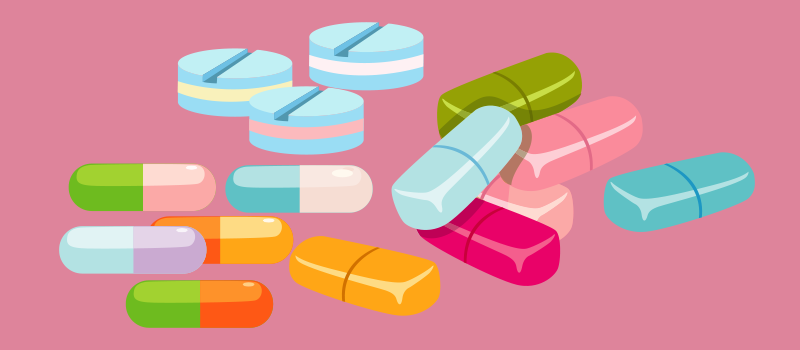
If you are among the millions of Americans who experience depression or anxiety disorders, you may be considering taking medication for these conditions. Two of the most common types of medications that are used to treat mental disorders like depression and anxiety are called selective serotonin reuptake inhibitors (SSRIs) and benzodiazepines; however, there are significant differences between the two. Please continue reading to learn more about these prescription drugs and how they compare to each other.
What are SSRIs?
Selective serotonin reuptake inhibitors (SSRIs) are commonly prescribed antidepressant medications. They are used to treat symptoms of moderate to severe depression.
A selective serotonin reuptake inhibitor works by increasing the levels of a neurotransmitter called serotonin in the brain. Serotonin is a chemical messenger that carries signals between neurons (nerve cells in the brain). It is responsible for mood and behavior, in addition to a healthy sleep pattern. Selective serotonin reuptake inhibitors block serotonin’s reuptake (absorption) by neurons, thus making more of it available for signaling.
SSRIs are called “selective” because they selectively affect serotonin and not the other neurotransmitters. Another group of antidepressants called serotonin-norepinephrine reuptake inhibitors (SNRIs) block the absorption of two neurotransmitters: serotonin and norepinephrine. Besides SSRIs and SNRIs, tricyclic antidepressants are older antidepressants that block the action of acetylcholine while increasing the levels of serotonin and norepinephrine.
SSRIs are prescription medications. The Food and Drug Administration (FDA) has approved several SSRIs, including fluoxetine (Prozac), citalopram (Celexa), Escitalopram (Lexapro), sertraline (Zoloft), and paroxetine (Paxil).
What are benzodiazepines?
Benzodiazepines are a group of prescription drugs mainly used to treat anxiety disorders. They are also effective in treating other mental disorders such as panic disorder and depression. Certain benzodiazepines are also effective in treating alcohol withdrawal and seizure disorder.
It is unclear exactly how benzodiazepines work, but it appears they also affect neurotransmitters in the brain. As mentioned, neurotransmitters are naturally occurring chemicals that nerve cells use to communicate. Specifically, benzodiazepines are believed to affect a neurotransmitter called gamma-aminobutyric acid (GABA), which suppresses brain activity. GABA is responsible for reducing stress and creating calmness. Scientists believe that benzodiazepines effectively treat anxiety disorders because they reduce activity in the central nervous system, thus producing a relaxing and calming effect in people with generalized anxiety disorder.
The U.S. Food and Drug Administration (FDA) has approved various benzodiazepines such as diazepam (Valium), alprazolam (Xanax), lorazepam (Ativan), clonazepam (Klonopin), temazepam (Restoril), and others.
SSRIs vs. benzodiazepines: Which is better?
SSRIs and benzodiazepines are different types of medications. They are approved for treating different conditions. Therefore, it is not possible to say one is better than the other.
SSRIs are used to treat major depressive disorder, panic disorder, obsessive compulsive disorder (OCD), post traumatic stress disorder (PTSD), social phobia or social anxiety disorder, and premenstrual dysphoric disorder (PMDD). Common adverse effects of SSRIs are nausea, indigestion, diarrhea, dizziness, drowsiness, dry mouth, blurred vision, insomnia, weight gain, and sexual dysfunction.
Benzodiazepines are indicated for the short-term treatment of anxiety disorders and anxiety-related psychiatric symptoms in patients suffering from depressive symptoms. Benzos are also used for treating panic disorder with or without agoraphobia (a fear of places that are difficult to leave). Common adverse effects of benzodiazepines are dizziness, drowsiness, confusion, slurred speech, fatigue, and memory problems.
There is a key difference between benzodiazepines versus antidepressants like SSRIs. SSRIs work more slowly and are used to treat depressive and anxiety disorders long-term. Benzodiazepines are fast-acting and well-tolerated with fewer adverse events, but their long-term use has major safety concerns due to their withdrawal and dependence potential.
Frequently Asked Questions
What is the preferred first-line treatment for antidepressants?
SSRIs are usually the first-line treatment for depression. Remember that an SSRI antidepressant medication is not a quick fix. It will need several weeks to become effective. It is important to be patient in expecting relief from depression and anxiety symptoms and not miss doses during treatment. Let your doctor know if you experience unbearable, severe adverse effects or if you have self-harming thoughts, especially during the first 4 to 6 weeks of treatment.
What is the first-line treatment for anxiety?
In general, drugs are not considered the first-line acute treatment for anxiety disorders. This is because psychotherapy modalities, such as cognitive behavioral therapy (CBT), are very effective. CBT can significantly improve depressive symptoms and anxiety-related psychiatric symptoms without causing any long-term adverse reactions.
Sometimes, benzodiazepines are used to treat anxiety during the initial weeks of treatment with antidepressants when the anti-anxiety effects of the antidepressant have not yet kicked in. However, many mental health professionals prefer to avoid benzodiazepines altogether rather than putting a patient on a benzodiazepine and then taking them off 6-8 weeks later.
As mentioned above, benzodiazepines are fast-acting, effective, and well-tolerated drugs to treat generalized anxiety disorder. They have few adverse reactions and interactions with other medications. However, they can cause cognitive effects such as confusion and memory problems. Also, there is a risk of abuse and dependence (you can become physically dependent or addicted to benzos). You should not stop taking benzodiazepines abruptly, as it can cause uncomfortable and even severe withdrawal symptoms such as increased anxiety, irritability, sleep disturbances, and hand tremors.
Lastly, there is some evidence that benzodiazepines may make cognitive behavior therapy (CBT) less effective. This is because psychological treatments like CBT improve coping abilities and makes you more resilient to stress. Benzodiazepines, on the other hand, make a person with anxiety disorder less anxious, and the person never really needs to learn to manage their anxiety.
What is the second-line treatment for generalized anxiety disorder?
Benzodiazepines are commonly used as a second-line treatment for generalized anxiety disorder in combination with antidepressants. They are used in patients with anxiety symptoms that have not responded well to antidepressants. However, as noted, there are major concerns with the long-term use of benzodiazepines. Therefore, many mental health professionals believe that cognitive behavioral therapy (CBT) is a better alternative.
Is Xanax better than antidepressants?
Xanax, the brand name of alprazolam, is a benzodiazepine; it is not an antidepressant. It is difficult to compare the two drug classes head-to-head. Depending on what mental health condition you have, one drug may be superior to the other.
In general, antidepressants like SSRIs are used for the longer-term treatment of depression and anxiety disorders. Benzodiazepine therapy is used for the short-term treatment of panic disorder and anxiety disorders because of the potential for abuse and/or dependence.
For the best long-term outcome, antidepressants and benzodiazepines must be used in a comprehensive mental health treatment plan that includes psychotherapy modalities like cognitive behavior therapy.
Your healthcare provider is the best person to determine which drug is best for you based on your symptoms, medical history, and the other medications you take that could interact with SSRIs or benzodiazepines.
The Takeaway
When treating major depression, generalized anxiety disorder, panic attacks, and other mental health conditions with medications, doctors will start with behavioral therapy before transitioning to a pharmacological approach. Do not expect your mental health professional to automatically reach for their prescription pad and write a script for depression or anxiety medications immediately without assessing the severity of your case. Most often, they will try non-pharmacological approaches such as cognitive behavioral therapy first and use drug therapy only when necessary. This is because all medications carry a risk of side effects and potential drug interactions. However, in some cases, medications are required. You should work with your provider to weigh the risks vs. benefits of taking SSRIs or benzodiazepines.
References:



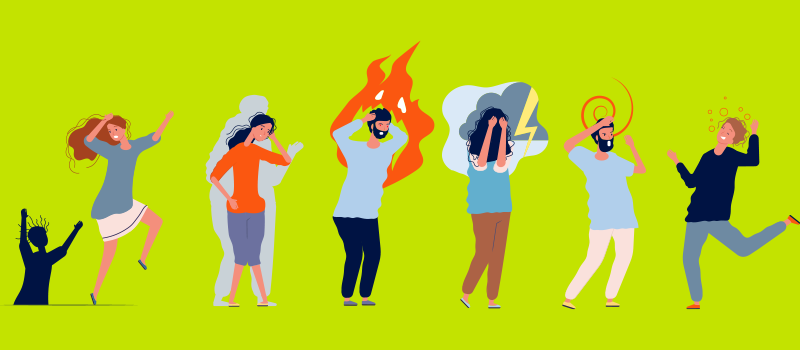

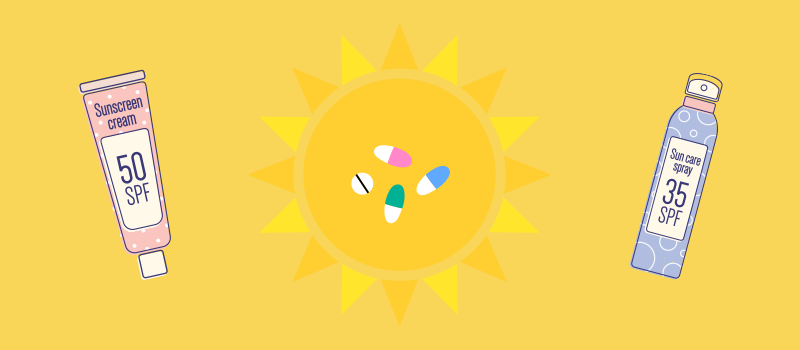
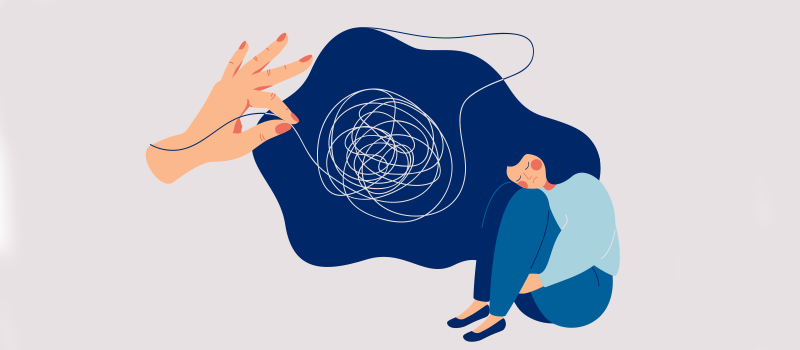
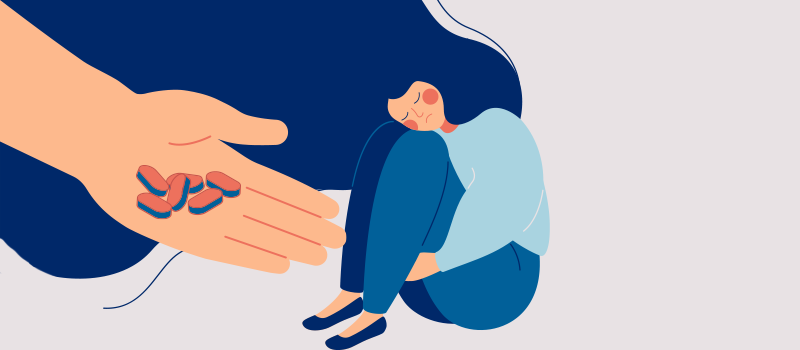




SOCIAL